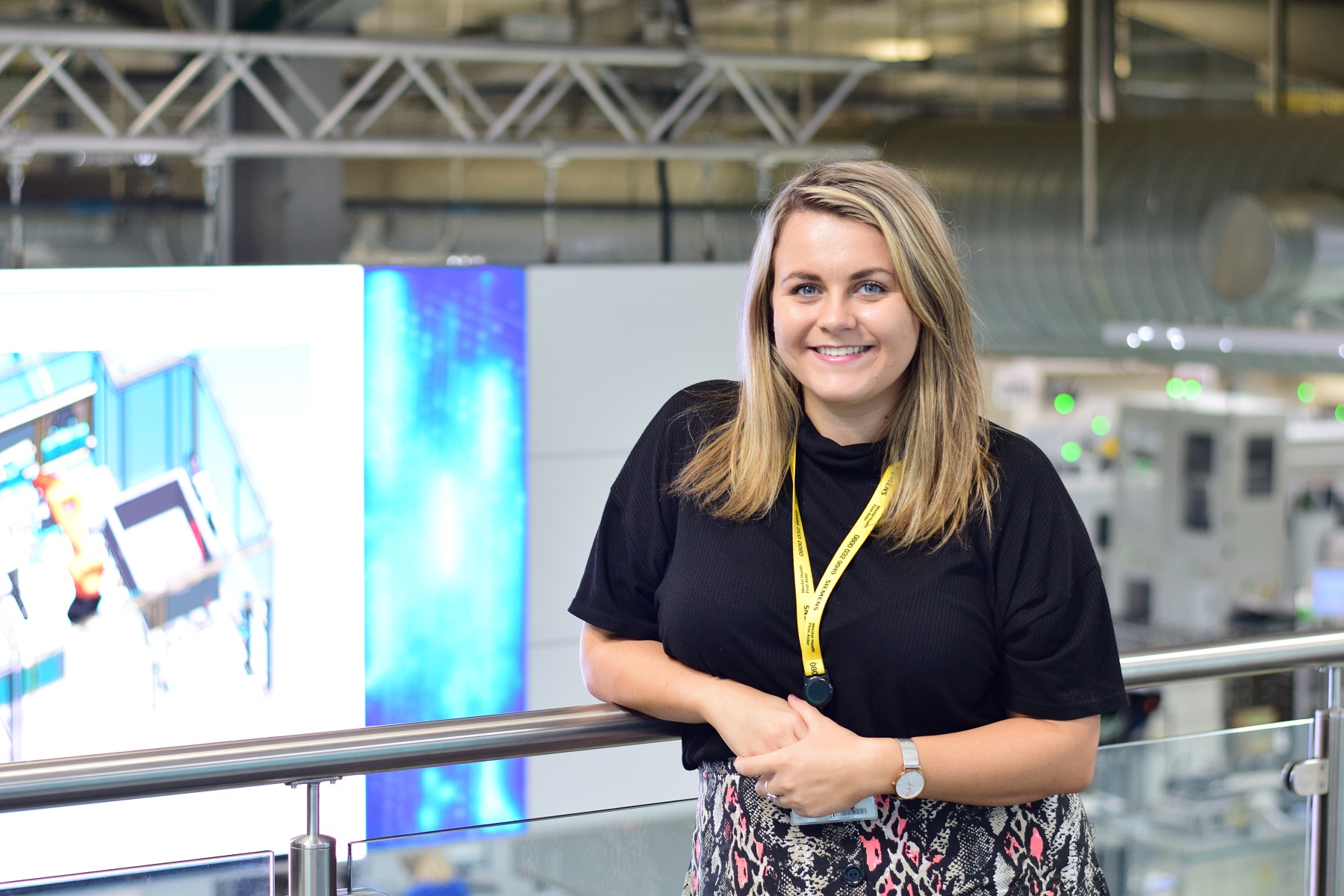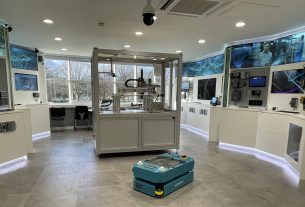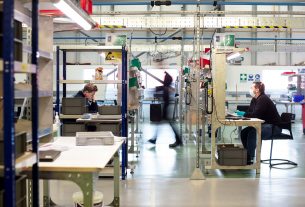Ambitious goal revealed for International Women in Engineering Day (INWED) 2021
Siemens is aiming for gender parity in its Early Careers recruitment to increase the number of women in engineering.
Latest figures from its core businesses show 43% of those enrolled on Siemens’ graduate programmes and 36% on its apprenticeship schemes are female.
The company is now targeting 50/50 gender parity in Early Careers recruitment by 2025 as part of its drive to build an innovative and diverse culture.
Announcing the ambitious goal on International Women in Engineering Day, Joanne Gogerly, Head of Siemens Professional Education UK and North West Europe, said: “The digital revolution in industry offers an opportunity to build a better gender balance in engineering and technology companies like Siemens.
“We are driving this change by making Equality, Diversity and Inclusion (ED&I) a core focus to enable women to succeed in every kind of role from management and manufacturing to projects, sales and service.
“The UK still languishes amongst the lowest when it comes to the percentage of female engineering professionals in Europe, yet industry needs the talent, skills and experience of women more than ever.
“By improving the methods, we use to attract more women to Siemens engineering roles such as more inclusive language in recruitment advertising and using more diverse recruitment platforms, and sharing more of the inspirational stories of women in the company to bust a few myths about modern engineering, Siemens can play its part on bridging this gender gap.”
For Siemens’ current crop of young talent, the challenges caused by the pandemic have only strengthened their resolve and commitment to engineering and becoming STEM role models for the next generation.
Natalie Gristwood joined the graduate programme and is now an Industrial Security Engineer where she supports Siemens’ customers in assessing and improving cybersecurity at their plants.
“I was always good at mathematics and physics, but I didn’t realise until I was in Sixth Form and attended a careers fair that I wanted to pursue engineering,” Natalie explained. “Now there’s no looking back. I enjoy my work and I’ve had some interesting experiences, especially as there’s been a thrust in my line of work during the pandemic.
“When the first lockdown was announced and organisations embraced remote working, there was a spike in cyber-attacks by something like 80%. Our department came under the spotlight and despite travel restrictions we conducted security assessments and worked efficiently to resolve any cyber threats.”
Natalie is also a mentor for Sixth Form students.
“Being a mentor for the engineering education scheme, we support a student team, so I’ve come full circle,” Natalie added.
Another young woman making her mark and inspiring girls to pursue an engineering career is Olivia Kelly, a Software Engineer at Siemens.
The 26-year-old gaming and anime enthusiast has been involved in a variety of hackathons including last year’s record-breaking ventilator challenge, which enabled the Ventilator Challenge UK consortium to achieve its target of producing 13,500 medical devices in just 12 weeks, and, more recently, used technology like Siemens NX and digital twin to design a car manufacturer’s new factory.
“These hackathons help reiterate that even though we would think the world is on fire, essentially that we could still do things and even be more creative,” added Olivia. “In addition to our day-to-day tasks we have been working on all these exciting projects that promote sustainability.”
IT Degree Apprentice Sian Court is making her mark having scooped two awards early in her career with Siemens: RateMyApprenticeship’s 2019 Outstanding Degree Apprentice (Level 6 or 7) and Make UK’s 2020 Business Apprentice of the Year: Rising Star.
“Success hasn’t come so easy,” she said. “Before I joined Siemens I completed a year’s apprenticeship at a doctor’s surgery but couldn’t find a job so had to look for something else. By chance I met a colleague from a work experience at Siemens’ Congleton factory who advised on the new intake for apprenticeships. I applied immediately and here I am and never looking back as I’m doing what I most enjoy.”
At the start of the pandemic Sian’s job was to support Siemens employees to transition to work from home while ensuring that remote connections to the server were highly secure.
“Working from home also opened doors for some unusual new experiences for me,” Sian said. “I joined the Mental Health First Aid team, and our role was to support employees amid the pressures of working remotely whilst looking after their kids and managing home learning.”
During the lockdowns the country has been celebrating and encouraging front-line workers. This included teams of engineers who worked on-site to ensure that the machinery producing our essentials were continuously performing.
It was a challenge Helen Brindley relished.
Inspired to pursue engineering by her brother and godmother, who are both aeronautical and mechanical engineers respectively, Helen completed her apprenticeship degree programme last year and is now a Field Technician at Siemens.
“I like to roll my sleeves and get my hands dirty actually working on machinery and fixing it,” she explained. “The last 18 months have been an eye-opening experience and showed how important engineering is.
“Plants can lose thousands of pounds an hour in shutdowns. It is a great feeling of satisfaction and purpose getting that call in the middle of the night to fix a machine in a plant and see the impact of your work.”
Siemens is driving change as a member of the Apprenticeship Diversity Champions Network (ADCN), an initiative by the UK government which promotes apprenticeships and diversity amongst employers and encourages more people from underrepresented groups, including those with disabilities, women and member of the black, Asian and minority ethnic (BAME) communities.
As well as encouraging more young women to enter engineering through its Early Career avenues, Siemens is also committed to driving interest in STEM subjects to inspire younger generations.
This year it recently overhauled its work experience programme for young people aged between 14 and 19 by switching to a virtual delivery platform to drive inclusivity towards STEM.
Joanne Gogerly, who is also co-chair of the ADCN’s Women into STEM working group, added: “Siemens has a long list of women engineers as role models for young girls that are looking to join the engineering field which has unlimited opportunities across many facets of technology including mechanical, IT, electrical, civil, bio medical, chemical, etc.
“According to figures from Women’s Engineering Society (WES) 12.37% of all engineers are women in the UK and 21.8% women work in the engineering sector*. If we want these numbers to show an upward trend a collective and integrated approach is needed to welcome young girls into STEM careers.”





